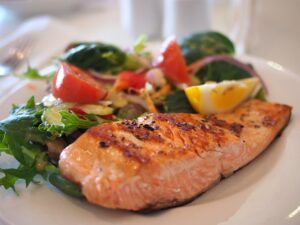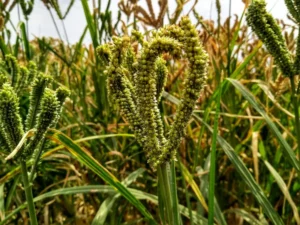When it comes to nutrition, it is fashionable to exclude the words “plant-based diet.” But why is it so sweltering now? According to Charleston, SC-based RDN Lauren Manaker, this may be due to a growing public awareness of a plant-based diet’s health and environmental advantages. Documentaries including What the Health (2017), Cowspiracy (2014), and Forks Over Knives (2013) have sparked a movement against consuming meat and other animal products (2011).
What does the term “plant-based diet” mean? Vegetarian and vegan are two terms that may refer to the same thing. Alternatively, does this diet need you to eat more vegetables?
What Does Plant Based Diet Mean?
There is no ambiguity regarding the interpretations above since they are all technically valid. As a nutritionist in Hartford, Summer Yule, RDN, notes, “Some individuals use the phrase “plant-based diet for beginners” as an acronym for the vegan diet.” I’ve also heard individuals refer to diets that are “plant-based” but not plant-based as “plant-based” by using the word “plant-based” in a broader sense that covers all vegetarian diets.
The goal here is to emphasize plant-based foods as the foundation of your diet. Plant-based diets focus on whole grains, legumes, fruits, vegetables, and nuts instead of animal products. Depending on how rigorous you want to be, you might impose even more limits. Manaker states, “Depending on the individual’s perception, and it may fully exclude or only restrict consumption from animals.”
It’s possible to consume meat and fish, but you may want to restrict your consumption of these foods rather than altogether avoiding them. Consider “plant-based” diets as a broad category that encompasses a variety of more specialized diets. For example, when it comes to the Mediterranean diet, the focus is on plant-based meals even though it includes fish and fowl, adds Manaker.
Plants are also used in vegetarian and vegan diets. A popular diet and lifestyle regimen like Whole30 isn’t an option. However, it is feasible to follow the Whole30 diet in a plant-based manner,” says the author.
You Can Be Both Plant-Based And Vegan
A person may be both plant-based and vegan since these phrases are not designed to separate individuals based on their lifestyle choices.
A plant-based, whole-foods diet may be adopted to attain health objectives by many individuals who begin as vegans and abstain from animal products for ethical or environmental reasons.
However, some individuals may begin by eating a primarily plant-based diet and then become vegan by eliminating animal products in other aspects of their lives, such as cleaning products and cosmetics.
Health Benefits of Plant-Based Diet:
An Ipsos Retail Performance 2020 survey estimates that there are 9.7 million vegans in the United States, more than 3,000 percent since 2004. A growing vegan sector has attracted the attention of corporations, and even conventional meat industry titans have jumped on board.
According to SPINS statistics for The Good Food Institute and Plant-Based Foods Association, sales of plant-based foods will grow by 27% in 2020, twice as fast as food sales in general. A whopping 57% of Americans said they prefer to purchase plant-based goods to animal-based ones.
Personal health, animal rights, and environmental concerns are just a few reasons people choose a plant-based diet. Thistle compiled a list of ten advantages of a plant-based diet based on an analysis of multiple scholarly papers published in peer-reviewed magazines such as Frontiers in Nutrition and Nutrients.
Whole grains, legumes, fresh fruit, seeds, and nuts are staples of plant-based diets, although not everyone who follows this way of eating does so exclusively. A person’s genetics, exercise level, pre-existing medical issues, and any nutritional deficits or dietary allergies all be considered while planning any diet. If you are switching to a plant-based diet, you’ll want to make sure you’re receiving enough B12 and omega-3 fatty acids. Let’s look at the plant-based diet for benefits.
-
The Heart Health Benefits Of A Plant-Based Diet
Saturated fat, found in meat, may cause heart disease if consumed in excess. You’re doing your heart a favour by cutting less on meat and consuming more plant-based meals. Research published in the August 2019 issue of the Journal of the American Heart Association shows plant-based diets prevent cardiovascular disease development and death by 16 percent and 31 percent, respectively.
In addition to decreasing meat consumption, you must ensure that the plant-based meals you consume are nutritious. If you want to keep your heart healthy and avoid heart disease by eating a diet rich in whole grains, legumes, fruits, vegetables, and healthy oils (like olive oil), you should eat a diet high in whole grains, legumes, fruits, vegetables and healthy oils (like olive oil).
-
Calms The Inflammatory Process
Heart disease, cancer, and other chronic inflammatory diseases have been related to inflammation. Consuming a diet high in fruits, vegetables, and whole grains has been shown to lower inflammation by boosting the immune system.
Aside from the fact that plant based diet India meals include a wide variety of phytonutrients (plant compounds) that help neutralize free radicals, they also contain carotenoids and flavonoids, which have been shown to reduce inflammation and damage DNA.
-
Reduction In Cardiovascular Disease Risk
The combination of high fiber, low saturated fat, and no dietary cholesterol found in whole plant-based diets makes them excellent choices for heart health. The cholesterol and saturated fats found in meat, cheese, and eggs may cause plaque development in the arteries when consumed in excess.
Even avoiding meat is not enough. Processed food, such as white rice and white bread, lacks nutritional content and has a high glycemic index, which is detrimental to heart health when following a plant-based diet. As a result, your chances of experiencing a spike in blood sugar and an increase in hunger are enhanced. A similar argument may be made that entire fruits are better for you than any amount of fruit juice, even if it contains nothing but sugar.
-
Improved Gastrointestinal Health
The benefits of plant-based foods for gastrointestinal and general health have been shown. It is essential to maintain a healthy gut microbiome to maintain a healthy metabolism, immune system, bowel motions, and levels of hormones that regulate hunger.
A study headed by Hana Kahleova, M.D., Ph.D., of the Physicians Committee for Responsible Medicine and presented in 2019 at the European Association for the Study of Diabetes in Barcelona showed that only 16 weeks of a healthy vegan diet centered on whole fruits and vegetables improved gut health.
-
Protects Your Brain
According to a meta-analysis published in Frontiers in Aging Neuroscience, consuming more fruits and vegetables lowers your risk of cognitive decline and dementia by 20%.
Plants contain antioxidants that remove cellular waste (also known as free radicals) and protect cells from oxidative stress.
Live Longer If You Stick To A Plant-Based Diet For A Long Time
It all comes down to one thing: extending your life expectancy. According to research published in the Journal of the American Heart Association, a plant-based diet reduces mortality risk across the board by 25%. Keeping to a plant-based diet also raises your body’s protective levels.
Plant-based diets may provide an additional 5% of protection, according to research published in the Journal of Nutrition in April 2018. Researchers used a scale ranging from 1 to 17 to classify plant meals as healthful. Plant-based foods, such as whole grains, vegetables, and fruit, obtained a better grade than less-healthy items, such as soda, cake, and white bread.
A-List Of Foods To Eat More Of And Less Of
Plant protein and necessary amino acids are provided by legumes (chickpeas, beans, peas, and lentils).
Calcium and other elements may be found in leafy green and cruciferous vegetables.
Nutritional facts are found in nuts and seeds.
Essential amino acids, iron, and zinc may be found in whole grains.
So that you don’t eat the same thing at every meal and every day, a wide variety of vitamins, minerals, and phytonutrients will be available to you.
As a result, we may infer that the plant-based diet’s suggested foods are primarily whole and minimally processed, which you should seek to consume less of.
Because of the current trend of eating more vegetables and less meat, food producers are now providing more alternatives for plant-based goods. Not all vegan products are healthy, even if they claim to be.
It’s essential to pay attention to the food you’re consuming. According to an investigation published recently, refined grains and other highly processed foods raised the risk of heart disease among plant-based eaters who ate a diet rich in legumes, vegetables, nuts, whole grains, and fruit.
Finally,
In addition to weight reduction or maintenance, eating a diet rich in plant foods and low in animal products may reduce the risk of heart disease and diabetes. Starting on a plant-based diet may be done gradually by cutting down meat and dairy consumption.
An ideal starting point is to replace one animal product with a plant-based alternative once or twice weekly. Making significant dietary adjustments should be discussed with a physician or dietician.
FAQs :
-
Is it healthier to eat a plant-based diet?
On the other hand, plant-based diets are more popular due to their reputation as being healthier. For a good reason, too. Many studies have connected plant-based diets to decreased incidence of cardiovascular disease, type 2 diabetes, and certain malignancies (compared with diets high in meat and other animal products).
-
For what reason do doctors recommend plant-based diets?
There is strong evidence that plant-based diets may reduce body mass index, blood pressure, HbA1C, and cholesterol levels at a minimal cost and risk. It’s also possible that they might cut the number of drugs required to treat chronic conditions and lessen ischemic heart disease death rates.
-
Is it true that vegans have longer lives?
Vegetarian males live an average of ten years longer than non-vegetarian men, according to a team of researchers from Loma Linda University in the United States. Vegetarianism extended the life expectancy of females by six years, allowing them to live an average lifespan of 85 years.
Also Read : Diabetes Diet Plan for Beginners : Types, Benefits, Food List
















